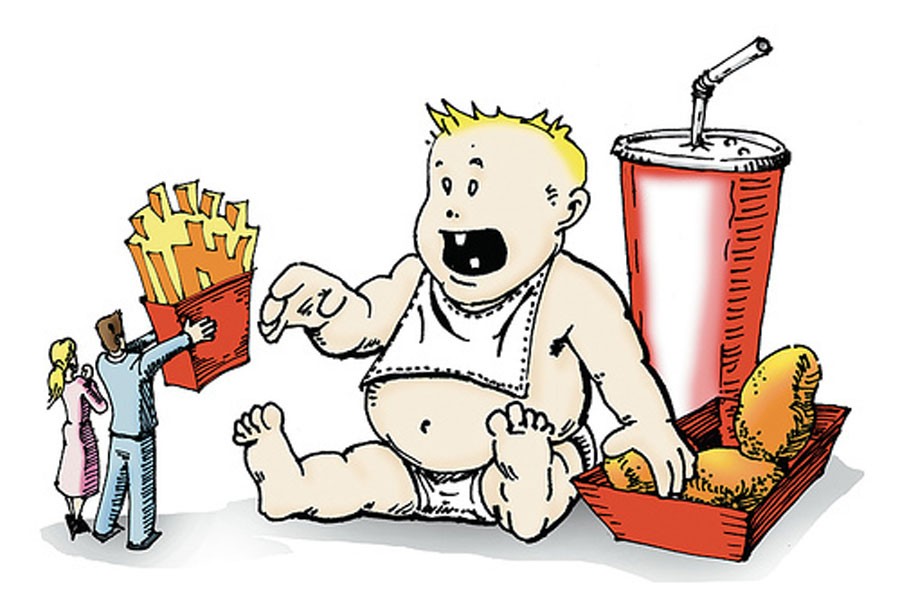OBESITY in children is increasing alarmingly not only in our country but also across the globe. One third of children in the U. S. is overweight or obese, and the number is continuing to rise. Children have fewer weight-related health and medical problems than adults. However, overweight children are at high risk of becoming overweight adolescents and adults, placing them at risk of developing chronic diseases like heart disease and diabetes later in life. They are also more prone to develop stress, sadness, and low self-esteem.
Children become overweight and obese for a variety of reasons. The most common causes are genetic factors, e.g., lack of physical activity, unhealthy eating patterns, or a combination of both.
Parents have an important role to play. They should give proper guidance to their children about the ways of having a healthy life and avoid obesity. I was reading in an article the other day that those babies who are given extra calories are more likely to become overweight during their later age. Many parents often complain about their children eating less, but when their weights are measured on a scale, they are found all right. It is mostly out of affection for their children that they do so. I have a relative who used to force feed her girl child and during her childhood and the girl was overweight. Now she has become an adult and looks flabby. The girl now blames her parents for force feeding her during her childhood and occasionally suffers from depression. A child specialist told me that most of the parents have a needless tendency of being worried that their children are not eating properly when their growth says that everything is just fine. As parents we must be careful and should not burden children with extra calories.
Mohammad Sohel Hara
Bonosree, Dhaka


